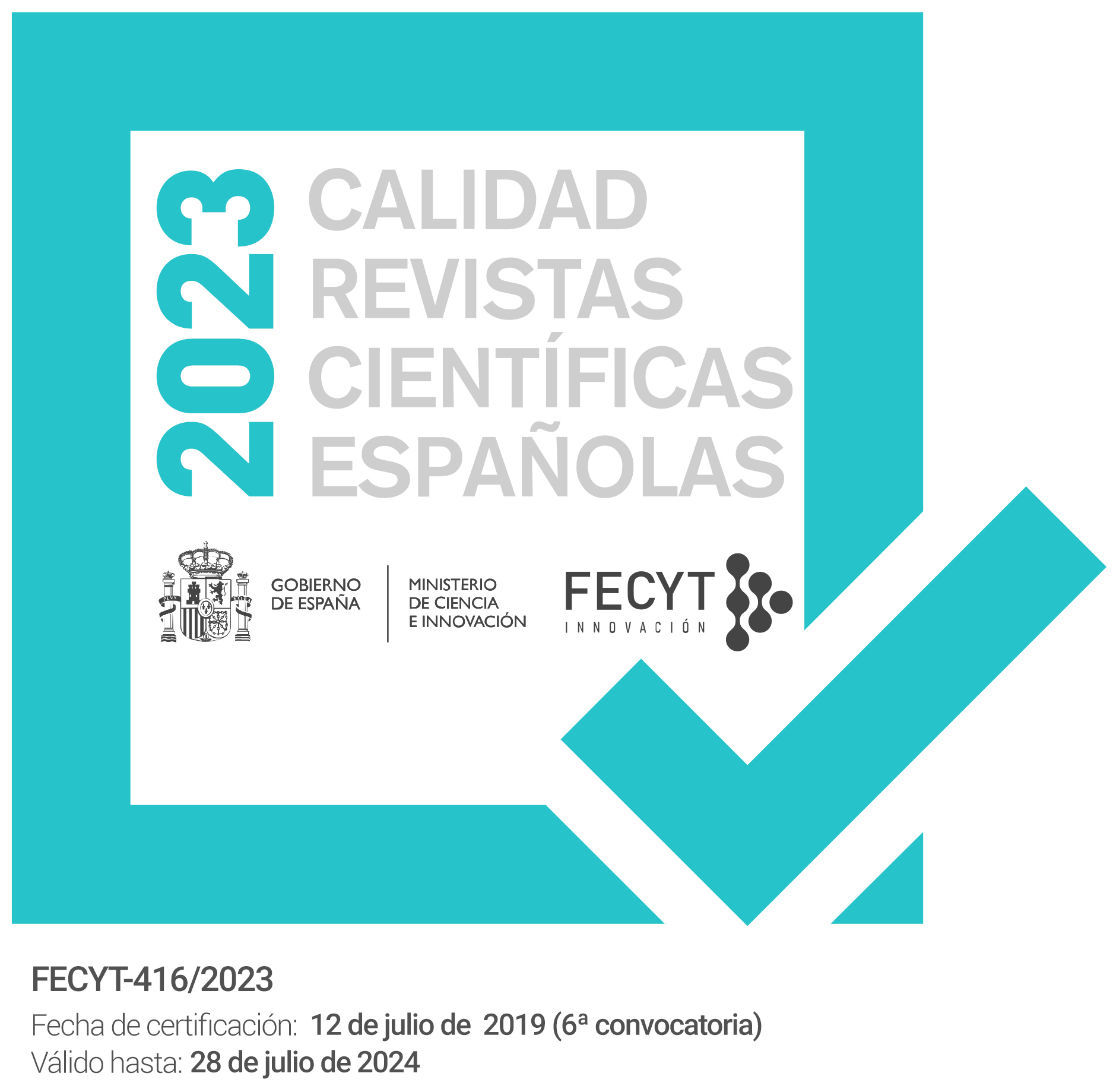“Mother’s love” and uses of gender normativities: maternity and slavery through the case of Narcisa in Meridional America (XVIII)
DOI:
https://doi.org/10.51349/veg.2025.2.07Keywords:
South America, normative knowledge, Maternity, SlaveryAbstract
This article analyzes motherhood and slavery in Southern America at the end of the 18th century through the case of Narcisa, an enslaved woman accused of injuring a child. Her procurator argued "maternal love" as the motive, alleging that the child's father had previously assaulted Narcisa's son. Motherhood, a female social role and fulfillment of the natural order, contrasted with the reality of poverty in Portuguese America, where women worked to subsist, involving their children. Enslaved mothers faced multiple economic, gender, and racial oppressions. However, sources reveal strategies developed by enslaved women to obtain benefits for themselves or their children. Narcisa's case exemplifies this: the use of white elite norms—such as "maternal love" and its implicit Christian values — was a strategy benefiting an enslaved woman.
Downloads
References
Badinter, E. (1986): O amor incerto: história do amor maternal do século XVII ao XX, Lisboa, Relógio D’água.
Biguelini, E. (2021): “No que toca à ama”: a maternidade nas cartas entre D. Leonor de Portugal e o Morgado de Mateus, Convergência Lusíada, vol. 32, 45: 64-83.
Blanco, M. M. (2017): Entre Luzias e Marianas: vivências familiares de mães solteiras escravas no mundo rural (Campos de Viamão, 1747-c.1760), en H. Costa; M. D. Hameister; R. dos S. Marques (eds.). Tecendo as suas vidas: as mulheres na América Portuguesa, São Leopoldo, Casa Leiria.
Candau Chacón, M. L. (2007): Disciplinamiento católico e identidad de género. Mujeres, sensualidad y penitencia em la España moderna, Manuscrits, Barcelona, 25: 211-237.
Dantas, M. (2016): Mulheres e mães negras: mobilidade social e estratégias sucessórias em Minas Gerais na segunda metade do século xviii, Almanack, 12: 88-104.
Del Priore, M. (1993): Ao sul do corpo: condição feminina, maternidade e mentalidades no Brasil colônia, Rio de Janeiro, José Olympio.
Del Priore, M. (1994): A mulher na história do Brasil, São Paulo, Contexto.
Duve, T. (2020): What is global legal history?, Comparative Legal History, vol. 8, 2: 73-115.
Duve, T. (2022): Historia del derecho como historia del saber normativo, Revista de Historia del Derecho, 63: 1-60.
Farge, A. (1993): Fragile lives: violence, power and solidarity in eighteenth-century Paris, Cambridge, Massachusetts: Harvard University Press.
Farge, A. (2009): O sabor do arquivo, São Paulo, Editora da Universidade de São Paulo.
Ginzburg, C. (2006): O queijo e os vermes: o cotidiano e as ideias de um moleiro perseguido pela Inquisição. São Paulo: Companhia das Letras.
Ginzburg, C. (2014): Mitos, emblemas, sinais: morfologia e história, São Paulo, Companhia das Letras.
Gomes, L. C. (2017), As forras e a luta pela autonomia na América portuguesa: produção agrícola e pequeno comércio urbano em Porto Alegre, décadas finais do século xviii, en H. Costa; M. D. Hameister; R. dos S. Marques (eds.), Tecendo as suas vidas: as mulheres na América Portuguesa, São Leopoldo, Casa Leiria.
Hespanha, A. M. (1994): Às Vésperas Do Leviathan: Instituições e Poder Político, Portugal – Séc. xvii, Coimbra, Almedina.
Hespanha, A. M. (2015): Como os juristas viam o mundo. 1550-1750: direitos, estados, pessoas, coisas, contratos, ações e crimes, Lisboa.
Hora, R. C. C. da (2022): Alforrias, relações de gênero e maternidade na cidade da Bahia em meados do setecentos. Afro-Ásia, 66:77-115.
Lopes, M. A. (2017): Estereótipos de “a mulher” em Portugal dos séculos XVI a XIX (um roteiro), em M. A. Rossi (ed.), Donne, Cultura e Società nel panorama lusitano e internazionale (secoli xvi-xxi), Viterbo, Sette Città.
Machado, C. (2008): A trama das vontades: negros, pardos e brancos na construção da hierarquia social do Brasil escravista, Rio de Janeiro, Apicuri.
Mantecón Movellán, T. (1996): Desviación, disciplina social e intervenciones judiciales en el Antiguo Régimen, Studia Histórica, Historia moderna, vol. 14.
Martins, R. (1995): História do Paraná, Curitiba, Travessa dos Editores.
Massuchetto, V.; Pereira, L. F. L. (2020): O rei como dispensador da graça: autos de livramento crime e cultura jurídica criminal em Curitiba (1777-1800), Tempo, 26, 1: 123-142.
Muchembled, R. (2012): História da violência: do fim da Idade Média aos nossos dias, Rio de Janeiro, Forense Universitária.
Paiva, E. F. (2017): Dar o nome ao novo: uma história lexical da Ibero-América entre os séculos xvi-xviii (as dinâmicas de mestiçagens e o mundo do trabalho), Belo Horizonte, Autêntica.
Silva, M. B. N. da (1993): Vida privada e quotidiano no Brasil na época de D. Maria I e de D. João VI, Lisboa, Editorial Estampa.
Silva, M. B. N. da; Bacellar, C. de A. P.; Goldschmidt, E. R.; Neves, L. M. B. P. (2009): História de São Paulo colonial, São Paulo, Editora UNESP.
Downloads
Published
Issue
Section
License
Copyright (c) 2025 Vanessa Massuchetto

This work is licensed under a Creative Commons Attribution-NonCommercial-NoDerivatives 4.0 International License.
The articles are open access distributed under the terms of the Creative Commons Attribution-NonCommercial-NoDerivatives (CC BY-NC-ND) Spain 4.0 license. Authors who publish in this journal agree with the following terms:
a) Authors retain the copyright and guarantee the journal the right to be the first publication of the work as well as licensed under a Creative Commons Attribution License that allows others to share the work with a recognition of the authorship of the work and the Initial publication in this magazine.
b) Authors may separately establish additional agreements for the non-exclusive distribution of the version of the work published in the journal (for example, place it in an institutional repository or publish it in a book), with recognition of its initial publication in this magazine.
c) Authors are allowed and encouraged to disseminate their work electronically (for example, in institutional repositories or on their own website) before and during the submission process, as it may result in productive exchanges, as well as a earliest and largest citation of published works (See The Effect of Open Access).




